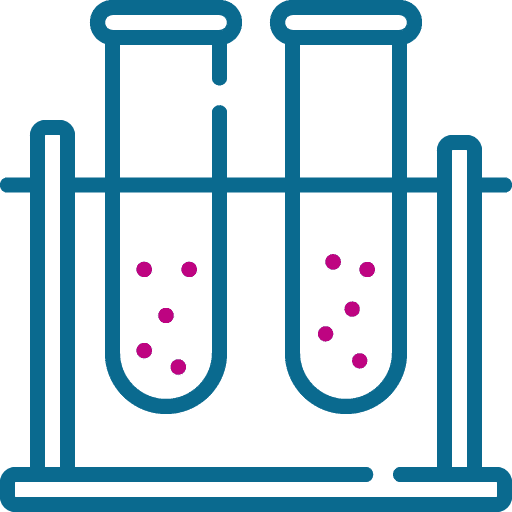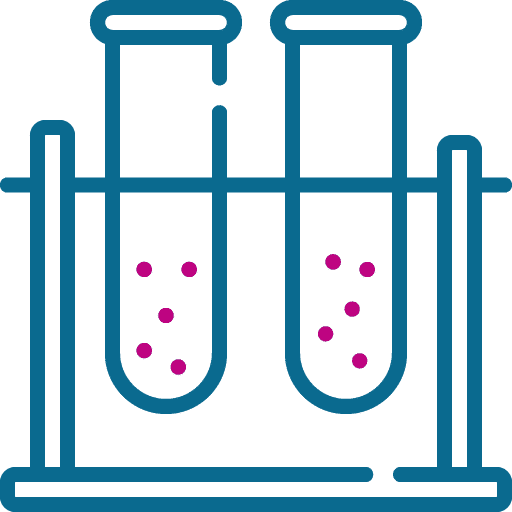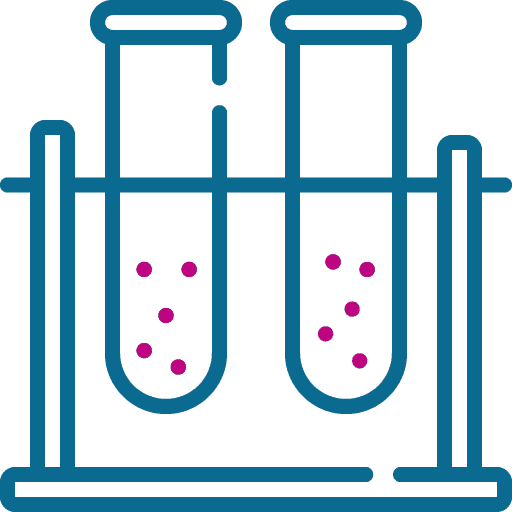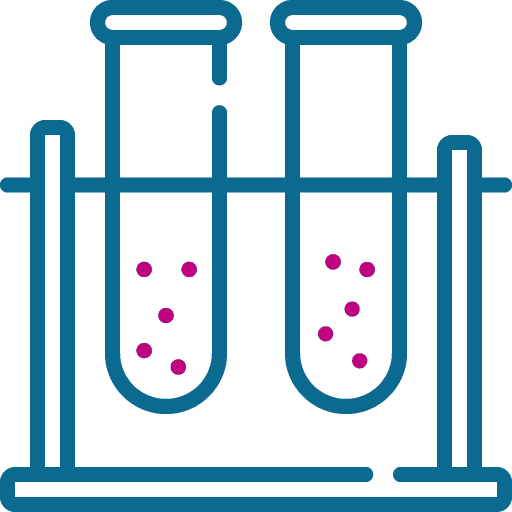Blood sampling and tests in our partner laboratories
Buy tests at Telesante and save. The service is valid throughout Lithuania, and when buying 5 or more tests online, we will automatically apply a discount of even 15%! The service is provided in cooperation with UAB Medicina practica laboratory.
Examples of service prices
8,00 EUR
General blood test
47,40 EUR
Primary program for women
With this service we will provide
We will save your time
The right time and place for you
Registration for the test
Free blood tests evaluation
How does it work?
Order a service
Choose the tests you want to do.
Fill in the data in Telesante
We will fill in all the necessary information for you in the lab.
Pay for the service
Pay for the tests you choose.
Wait for the call
Telesante specialists will contact you and inform you what to do next.
You will not need to register at the laboratory and make orders yourself. We will do everything.
After purchasing the tests from us, you will be able to come directly to the procedure room. You will not need to visit the cash desk or reception.
Patient requirements for preparing for a blood draw.
Blood collection laboratories.
- Here is just a small sample of the research we can do. If you can’t find the study you want, please contact us: info@telesante.lt
- For purchases of 5 tests or more, we will automatically apply the following to your basket 15 % discount.
| Name | Summary | Price | Buy | hf:tax:product_tag | |
|---|---|---|---|---|---|
| Alanine aminotransferase (ALAT, GPT) | It is often ordered together with an aspartate aminotransferase (AST) test for the diagnosis or evaluation of liver disease. AST and ALT are considered the two most important tests for detecting liver damage. | 6,50 € | biochemical-tests | ||
| Albumin | A screening test to assess liver dysfunction or kidney disease. It is also suitable for assessing nutritional status (especially in hospitalised patients). | 6,50 € | biochemical-tests | ||
| Alkaline phosphatase | It is an indicator of bone and liver pathology. Important to note: sometimes an increase in this enzyme can be due to the patient’s blood being tested after a meal. | 6,00 € | biochemical-tests | ||
| Antibodies against thyroid peroxidase | The ATPO test is performed when an autoimmune thyroid disease is suspected, most commonly Hashimoto’s thyroiditis or Graves’ disease. It helps identify the cause of thyroid dysfunction by detecting abnormalities in thyroid hormones (TTH or LT4). It is also very useful for women before or during pregnancy for assessing thyroid function. | 16,00 € | |||
| Antistreptolysin-O (ASO) - quantitative test | The indicator is useful in detecting contact with streptococcal infection. | 16,00 € | biochemical-tests | ||
| Aspartate aminotransferase (ASAT, GOT) | Investigation of liver damage. It is often ordered together with an alanine aminotransferase (ALT) test for the diagnosis or evaluation of liver disease. AST and ALT are considered the two most important tests for detecting liver damage. | 6,50 € | biochemical-tests | ||
| C-reactive protein (CRB) | The C-reactive protein (CRB) test is used to detect inflammation when tissue damage or inflammation caused by infection is suspected. | 9,00 € | biochemical-tests | ||
| Calcium ionised | It is recommended when changes in total calcium levels are detected. | 15,00 € | biochemical-tests | ||
| Cancer marker CA 125 (ovarian) | It is used to diagnose and monitor the effectiveness of treatment in ovarian cancer. | 18,50 € | cancer-marker-tests | ||
| Cancer marker CA 15-3 (breast) | It is used to diagnose and monitor the effectiveness of treatment in breast cancer. | 18,50 € | cancer-marker-tests | ||
| Cancer marker CA 19-9 (pancreatic) | CA 19-9 has a clinical sensitivity of 70-80% for pancreatic cancer. Evaluated together with CEA as a secondary marker for gallbladder, colon and stomach cancer; for liver metastases. | 18,50 € | cancer-marker-tests | ||
| Cancer marker CA 72-4 (stomach) | The best laboratory indicator for gastric cancer. Blood levels of the indicator are monitored to track the progress of gastric cancer | 23,00 € | cancer-marker-tests | ||
| Chlorine | Determined by assessing electrolyte-liquid balance. | 8,00 € | biochemical-tests | ||
| Cholesterol | Cholesterol testing differs from many other tests in that it is not only used to detect disease, but also to assess the risk of disease – especially ischaemic heart disease. | 6,00 € | biochemical-tests | ||
| Chorionic gonadotropin (HCG) | Chorionic gonadotropin is the main laboratory test for normal pregnancy. It can also be used as a marker for cancer. | 17,50 € | hormone-tests | ||
| Creatinine | The test is used to assess kidney function and to monitor the treatment of kidney disease. | 6,00 € | biochemical-tests | ||
| Cytomegalovirus (CMV) IgG | Chronic infection with cytomegalovirus or a history of contact with the causative agent. CMV IgG can be detected 7-14 days after infection. | 18,50 € | markers-of-infectious-diseases | ||
| Cytomegalovirus (CMV) IgM | Cytomegalovirus infection is detected during the acute period. CMV IgMs appear in the blood as early as 3-4 days after the start of infection and persist for several months (after which they degrade). | 18,50 € | markers-of-infectious-diseases | ||
| Cytomorphological examination of a blood smear | The microscopic blood test is definitive. It is used to more accurately assess blood cells. | 11,00 € | general-research | ||
| D-dimers | The test is performed in combination with other laboratory and instrumental (imaging, non-laboratory) tests to exclude the diagnoses of deep vein thrombosis, pulmonary embolism and stroke. | 21,00 € | blood-clotting-indicators | ||
| EBV (Epstein-Barr virus) IgG | Infectious mononucleosis is an acute viral infection characterised by fever, sore throat and enlarged lymph nodes. The source of infection is people with acute or chronic infectious mononucleosis, as well as healthy carriers. | 20,00 € | markers-of-infectious-diseases | ||
| EBV (Epstein-Barr virus) IgG | The test indicates a history of contact, active infection or viral relapse. | 20,00 € | markers-of-infectious-diseases | ||
| EBV (Epstein-Barr virus) IgM | The study shows an acute infection of infectious mononucleosis caused by Epstein-Barr virus. The increase in IgM antibodies to EBV capsid antigen (Epstein barr) disappears within 4-6 weeks. | 20,00 € | markers-of-infectious-diseases | ||
| ENG (erythrocyte sedimentation rate) | It is performed to distinguish chronic inflammation from acute, bacterial or viral inflammation. | 6,50 € | general-research | ||
| Ercococcal encephalitis IgG | The IgG antibody test for tick-borne encephalitis is administered 3-4 weeks after the injection to determine the course of the chronic disease or to assess a pre-existing infection. | 16,50 € | markers-of-infectious-diseases | ||
| Ercococcal encephalitis IgM | Tick-borne encephalitis is a dangerous infectious disease spread by ticks. Unpasteurised milk can also cause infection. | 16,50 € | markers-of-infectious-diseases | ||
| Ferritin | The test is designed to assess how much iron is stored in the body. | 15,00 € | biochemical-tests | ||
| Fibrinogen | It is a protein involved in clotting. Once its plasma levels have been determined, further testing for other coagulation indicators may be needed. | 11,00 € | blood-clotting-indicators | ||
| Folic acid | It is used to detect disease in the following organs: liver, bone marrow, intestines, and to determine the cause of anaemia. Changes in red blood cells (erythrocytes) are also common. | 21,00 € | other-immunoenzymatic-tests | ||
| Gammaglutamyltransferase (GGT) | One of the most sensitive indicators of cholestatic liver syndrome, alcoholic and toxic liver injury, and liver metastases, with an increase that can become apparent early in the disease. | 6,00 € | biochemical-tests | ||
| Glucose | The test is needed to monitor people for diabetes mellitus, elevated glucose levels (hyperglycaemia) or reduced glucose levels (hypoglycaemia). | 5,50 € | biochemical-tests | ||
| HDL (α) cholesterol | HDL cholesterol testing is used to properly assess the risk of cardiovascular disease. | 6,00 € | biochemical-tests | ||
| Helicobacter pylori IgA | It allows you to identify whether a person is infected with H. pylori, as well as those with signs and symptoms of gastrointestinal disease and asymptomatic individuals. | 20,00 € | markers-of-infectious-diseases | ||
| Helicobacter pylori IgG | Helicobacter pylori IgG antibodies – a serological blood test that shows specific IgG antibodies against Helicobacter pylori. Helicobacter pylori causes diseases of the stomach and duodenum, such as erosion, ulcers and chronic gastritis. | 20,00 € | markers-of-infectious-diseases | ||
| High sensitivity CRB | The high-sensitivity C-reactive protein (CRP) test is used to assess the risk of cardiovascular disease. | 14,00 € | biochemical-tests | ||
| Homocysteine | The test is used to assess nutritional status when deficiencies of folic acid, vitamin B6 and/or vitamin B12 are suspected. It is used to diagnose the rare birth defect homocystinuria. | 31,00 € | biochemical-tests | ||
| Immunoglobulin E (IgE) | Total immunoglobulin E (IgE) testing is used as an aid in the diagnosis of allergies, sometimes to check for parasitic infections. | 14,00 € | other-immunoenzymatic-tests | ||
| Lactate dehydrogenase (LDH) | The LDH test is primarily used as a general indicator of the fact and severity of acute or chronic tissue damage. It is also used to assess the course of certain chronic diseases such as cancer, kidney and liver disease. | 10,00 € | biochemical-tests | ||
| LDL (β) cholesterol | LDL cholesterol testing is used to properly assess the risk of cardiovascular disease. | 7,00 € | biochemical-tests | ||
| Luteinising hormone (LH) | If your periods are irregular, blood tests are carried out daily, starting on the 8th day before the expected start of your period. Determining the maximum concentration allows you to assess the best time of day to get pregnant. | 14,50 € | hormone-tests | ||
| Lyme disease IgG antibodies | The later stages of Lyme disease and chronic disease are indicated by IgG antibodies, which start circulating in the blood 4-6 weeks after the infected tick bites. Elevated levels of these antibodies can persist for more than a year after contracting Lyme disease. | 15,00 € | markers-of-infectious-diseases | ||
| Lyme disease IgM antibodies | Lyme disease (borreliosis) is a dangerous infectious disease spread by ticks. | 15,00 € | markers-of-infectious-diseases | ||
| Magnesium | The test is used to determine the magnesium level in the blood, to assess the severity of kidney disease or uncontrolled diabetes, to diagnose gastrointestinal disorders, and to evaluate the causes of changes in calcium, potassium, phosphorus and parathyroid hormone (PTH). | 6,00 € | biochemical-tests | ||
| Mycoplasma pneumoniae IgG | To detect chronic infection caused by Mycoplasma pneumoniae or previous contact with the causative agent. Mycoplasma pneumoniae IgG titre rises later, after 3-4 weeks. | 18,00 € | markers-of-infectious-diseases | ||
| Mycoplasma pneumoniae IgM | For the diagnosis of acute infection caused by Mycoplasma pneumoniae. Mycoplasma pneumoniae serum primary M-class antibody (IgM) titres rise after approximately 2 weeks. from the time of infection or even later, and disappears within about a year. | 18,00 € | markers-of-infectious-diseases | ||
| Natris (Na) | Sodium levels should be monitored for kidney disease, acute inflammation, tumours, diuretics (urinary stimulants), heart failure, vomiting or diarrhoea. | 6,00 € | biochemical-tests | ||
| Potassium | The test is used to check for electrolyte disturbances, to diagnose hyperkalaemia (high potassium) and hypokalaemia (low potassium), and to assess kidney disease. | 6,50 € | |||
| Preventive Blood Test Package! | 🌿 Are you feeling tired, lacking energy, frequently getting sick, or simply want peace of mind knowing your health is under control? Then preventive blood tests are the best first step in taking care of yourself. | testing-programmes | |||
| Primary screening programme for men | The blood tests include 14 tests to assess pancreatic and kidney function, as well as cholesterol, triglycerides and sugar levels. A marker for prostate cancer is also tested. | testing-programmes | |||
| Primary screening programme for women | 15 tests are carried out after the blood is drawn, assessing thyroid, pancreatic and kidney function, cholesterol, triglycerides and sugar levels. | testing-programmes | |||
| Progesterone (PG) | Blood levels of progesterone are used to confirm that the body is ovulating. The progesterone test at various intervals can help to determine the exact day of ovulation. | 14,50 € | hormone-tests | ||
| Prolactin (PRL) | Prolactin testing is needed to diagnose a tumour of the pituitary gland called prolactinoma, and after a diagnosis of prolactinoma, to monitor the treatment of the disease and to assess whether the treatment is effective. | 29,00 € | hormone-tests | ||
| Prostate specific antigen (PSA) | The most important test is to diagnose the prostate carriage and monitor treatment. It is also used for preventive screening of men over 30 years of age for the early diagnosis of prostate cancer. | 13,50 € | cancer-marker-tests | ||
| Rheumatoid factor (RF) - quantitative test | A convenient test to assess the diagnosis, prognosis and course of joint diseases. | 13,00 € | biochemical-tests | ||
| Screening programme for children | If you notice negative changes in your child’s health, diet or behaviour, you should act quickly. Even when a child has no complaints, investigations may reveal a worrying situation. | testing-programmes | |||
| Testosterone | Testosterone levels in women’s bodies may indicate the development of certain tumours. It may be reduced in cirrhosis, estrogen treatment, and in marked obesity. | 17,00 € | hormone-tests | ||
| Thyrotropin (TTH, TSH) | The thyrotropin test is needed for screening and diagnosis of thyroid diseases (it is the most sensitive indicator of thyroid dysfunction), for monitoring the treatment of hypothyroidism and hyperthyroidism, and for investigating the causes of female infertility. | 11,50 € | hormone-tests | ||
| Thyroxine (T4) | A hormone produced by the thyroid gland. The free thyroxine test is much more accurate. Two parameters (TTH and FT4) are very important in differentiating between thyroid diseases. | 18,50 € | hormone-tests | ||
| Tick-borne encephalitis IgG (post-vaccination evaluation) | This test shows whether the patient has sufficient immunity to tick-borne encephalitis and when re-vaccination is needed. | 32,00 € | markers-of-infectious-diseases | ||
| Total bilirubin | It is an indicator of liver and gallbladder function. This test alone is not of great value in the diagnosis of the disease, and should be accompanied by a direct bilirubin test. It is performed in case of suspicion of: liver tumours, gallbladder stones, anaemia, cirrhosis, poisoning of the liver with poison. | 6,00 € | biochemical-tests | ||
| Total calcium | It is performed on people suffering from kidney, bone, heart, nervous system and dental diseases. | 6,00 € | biochemical-tests | ||
| Total protein | The test is used to assess a patient’s nutritional status, or to evaluate for liver or kidney problems or a number of other diseases. If the result of the total protein test is abnormal, further tests are needed to determine the cause of the condition. | 7,00 € | biochemical-tests | ||
| Triglycerides | Triacylglycerol testing is used to properly assess the risk of cardiovascular disease. | 5,00 € | biochemical-tests | ||
| Triiodothyronine (FT3) | It is a thyroid hormone produced in the tissues from thyroxine. Testing for free triiodothyronine is more accurate than total triiodothyronine. It is prescribed when thyroid disease is suspected. | 20,00 € | hormone-tests | ||
| Urea | It is used to assess kidney function and is more reflective of total kidney function. | 6,00 € | biochemical-tests | ||
| Uric acid | Used to diagnose gout. Elevated levels are found in kidney disease. | 6,50 € | biochemical-tests | ||
| Urine test (UTI) | The CST is a screening test for kidney disease and urinary tract infections. | 9,50 € | general-research | ||
| Vitamin B12 | Vitamin B12 deficiency is associated with weakness, fatigue, mobility problems, joint pain, mouth ulcers, mood swings, impaired vision and memory, and in severe cases, depression. | 26,00 € | other-immunoenzymatic-tests | ||
| Vitamin D | The test is used to diagnose vitamin D deficiency or excess, and to assess whether abnormalities in laboratory tests reflecting calcium metabolism (calcium, phosphorus, parathyroid hormone (PTH)) are due to vitamin D deficiency or excess. | 19,50 € | other-immunoenzymatic-tests | ||
| Zinc | A zinc test is used to detect zinc deficiency. The clinical value of excess zinc is minimal. | 19,00 € | |||
| α - amylase | To diagnose pancreatitis or other pancreatic diseases. | 9,50 € | biochemical-tests | ||
| α-fetoprotein (AFP) | This indicator is used to investigate two groups of pathologies: 1.cancers; 2.foetal malformations. | 16,00 € | cancer-marker-tests | ||
| Complete blood count (CBC) | A CBC is a selective automated blood test that provides information on all blood cells (erythrocytes, leucocytes, platelets) and the size distribution of cells. | 9,50 € | general-research | ||
| Automated haematological blood test (with reticulocytes) | A CBC is a selective automated blood test that provides information on all blood cells (erythrocytes, leucocytes, platelets) and the size distribution of cells. | 12,00 € | general-research | ||
| Determination of blood group and rhesus factor | A person has a blood type: 0, A, B, AB and Rh positive or negative. Knowing your blood type is essential for blood transfusions, and should be determined before surgery and when obtaining a driving licence. | 11,00 € | general-research |
Sign up for blood tests
Trust us and stop worrying! We are medical professionals who have been working with patients for many years, so we promise that the consultation will be useful for you.






